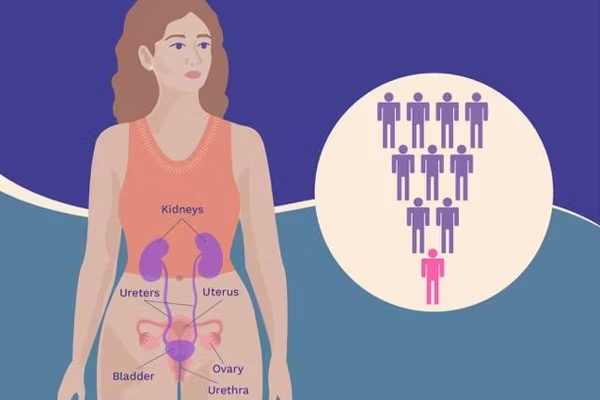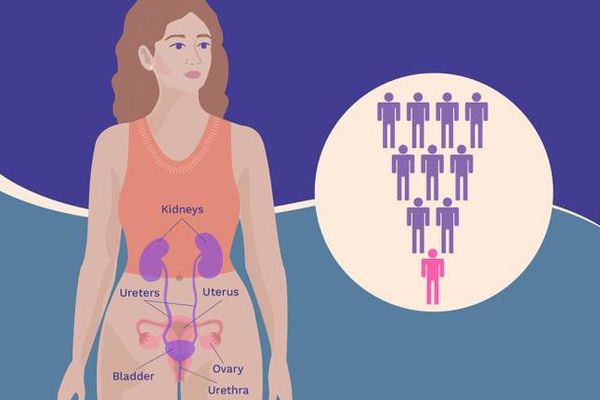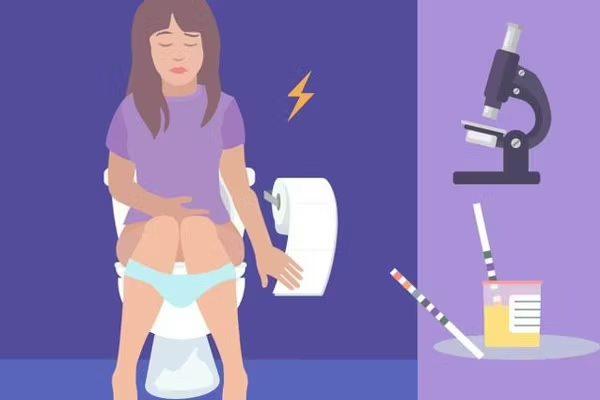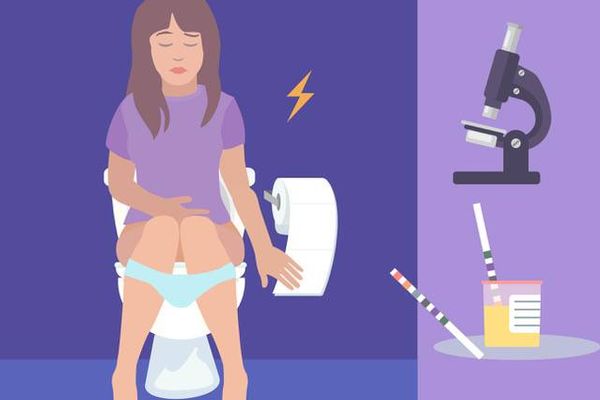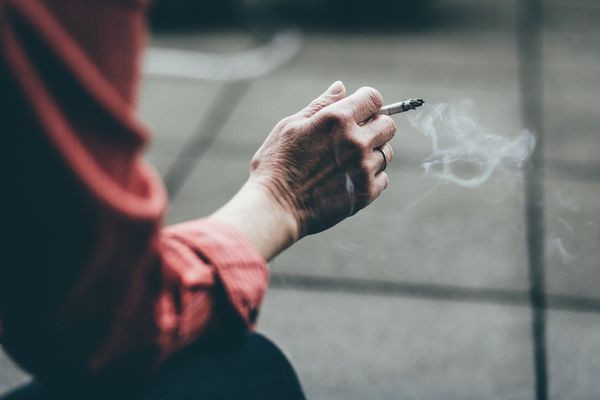This educational resource was created with support from Merck.
What is urothelial bladder cancer (UBC?)
Urothelial bladder cancer is a cancer that arises from the urethral cells, which are the inner lining of the bladder collecting systems of the kidneys and the ureters, and they also line part of the urethra. Most commonly, this cancer occurs in the bladder and other sites are much more rare, such as the upper tracks in the urethra.
Why is bladder cancer more likely to come back than any other type of cancer?
The human body excretes metabolites through urine, and some of these metabolites are toxic to the cells, and they can also give rise to cancers by promoting some mutations in the way cells divide and develop. We know some of these substances, or we call them carcinogens, but there are a lot more that we don't know. The reason these cancers can come back more frequently than in other types of cancers is because there are pre-cancerous changes that take time to develop in these cells. So new cancers can show up over time, and sometimes also some continued exposure to these carcinogens can cause issues and create more cancers. There is a small percentage of patients who may have genetic predisposition to urothelial cancers, and obviously those are patients that may have these cancers pop up, uh, very frequently. And the other thing that we need to think about, there's a lot of surface in the body that's lined up with these types of urothelial cells and, much like the cancers of the screen, of when one area is affected by a certain kind of a carcinogen, or anything that leads to a cancer development, the rest of the surface is also susceptible to these changes. So there's a whole lot of urothelium that can kind of give rise to cancers even if you treat the cancer in one area. So I think the biggest issue with the bladder cancer is just the ability for these cancers to recur, and that takes a huge toll on a patient's mental health. You know, there's this uncertainty of the risk of recurrence and progression, people have to come in every three months, sometimes, to have a check-up and it just — immense anxiety that builds up for every time before they come into, to, the checkup, and we deal with this all the time with the patients. Some people handle it better, some people handle it worse, but it's just, uh, you know, we know that in a bladder cancer population, this toll is very huge.
Why do women experience delays in bladder cancer diagnosis?
Well, women, um, are used to seeing blood in urine. Okay, so, blood in urine can be mistaken for urinary tract infections or gynecological causes. So women, when they see blood in the urine, you know, by default, they can go to, uh, a pharmacy, get a antibiotic from the Minute Clinic; they can seek evaluation from gynecologists. So as a result, they receive multiple courses of antibiotics, and on average, their diagnostic evaluation is delayed until the referral to a urologist is made.
UBC is more prevalent in men, but studies show that women have more advanced tumors at diagnosis. Why is this?
It's not a very simple answer to this — I think there is a multifactorial nature of this finding. You know, number one we touched on: there is a delay in diagnosis, so women that may have advanced stage of presentation. The other thing is, the biology in men and women is a little bit different. Uh, women have different microbiome, um, in the bladder, which can either, you know, delay or, uh, prevent the rise of bladder cancer. And, you know, sometimes it can either augment or, uh, you know, vice versa, the progression of these cancers. The other thing is there are different hormonal composition in the human body whether it's a man or woman, and that can affect the way, uh, the body metabolizes carcinogens, and also it can affect the way the cells progress in their cancer pathways.
Should women get a second opinion after their diagnosis? What are the next steps for finding a second opinion?
I think any cancer diagnosis, especially if the solution is not straightforward, should warrant a second opinion. The easiest way to go about finding a second, uh, opinion kind of a person or institution is to look at reputable institutions for treating cancer. Sometimes people can search advocacy networks or, uh, the particular type of cancer, so the bladder cancer. There are support groups that patients participate in and, you know, this can also be a source for patients. Um, it's usually very easy to request a second opinion. You know, most of the time all you need is a diagnosis of bladder cancer to be able to get in to see the specialist. Sometimes, you know, some specialists may require referral from either a urologist or a primary care physician. Uh, one thing I would just emphasize is to make sure to have all the pertinent diagnostic workup that had happened prior to the, you know, second opinion consultation to help us provide the most accurate advice to the patient.
How can mental health affect bladder cancer treatment?
We know there is a high proportion of patients with the diagnosis of bladder cancer, and even new diagnosis of bladder cancer, who experience mood disorders such as depression and anxiety — that number is fairly high. Having a mood disorder can affect the ability to cope with the disease itself, on both the emotional and biological level. On the emotional level, you know, people who are depressed may not have the, uh, motivation and the ability to kind of go through the, the great lengths of having the treatment as they need to. And on the biological level, there are a lot of, you know, circulating kind of cytokines and hormones that can be either suppressed or activated by the, uh, mechanisms that cause the mood disorders.
And they can also affect the progression and, you know, uh, the outcome of the disease. Uh, one thing I want to bring up is, you know, it's very important for the patient to seek a, uh, opinion from a mental health professional with these kinds of things happening. It's important to know that, you know, you're not alone in this battle, and important to know the clinicians are aware that these kinds of things are happening to the patient, so there's always a willingness and ability to put people in touch with the appropriate specialist to, you know, to have a multidisciplinary battle against this cancer.
Any last thoughts on bladder cancer?
It's important to know that there are advocacy networks that are reputable sources for getting answers to the questions. And, you know, I feel like this is like the golden era of bladder cancer because, um, when I first started practicing, uh, there was very little, you know, treatments and information about bladder cancer, and now, you know, it's this — it's just, just flourishing. We have all these new treatments, more treatments are coming down the line and, uh, there's a lot more awareness for, uh, women in bladder cancer. I think in a few years from now we're going to have a lot more answers to the questions that we're trying to answer.
- Tips for Traveling While Being Treated for Urothelial Bladder Cancer ›
- What Women Need to Know About Urothelial Bladder Cancer ›
- Life After Diagnosis: Navigating the Things You Love with Urothelial Bladder Cancer ›
- Fast Facts: Everything You Need to Know About Urothelial Bladder Cancer ›
- Life with Urothelial Bladder Cancer ›
- Una buena nutrición y el cáncer de vejiga - HealthyWomen ›
- Good Nutrition and Bladder Cancer - HealthyWomen ›
- Urothelial Bladder Cancer Quiz - HealthyWomen ›
- Cuestionario del cáncer de vejiga urotelial ›


